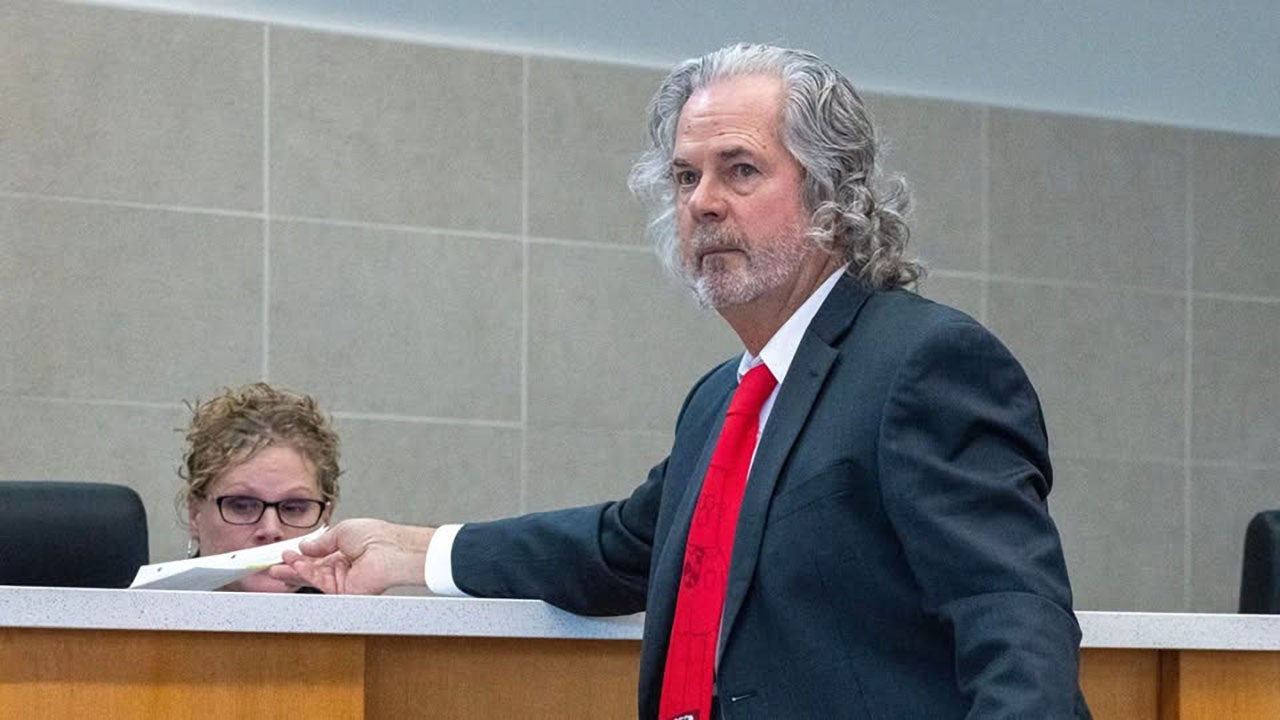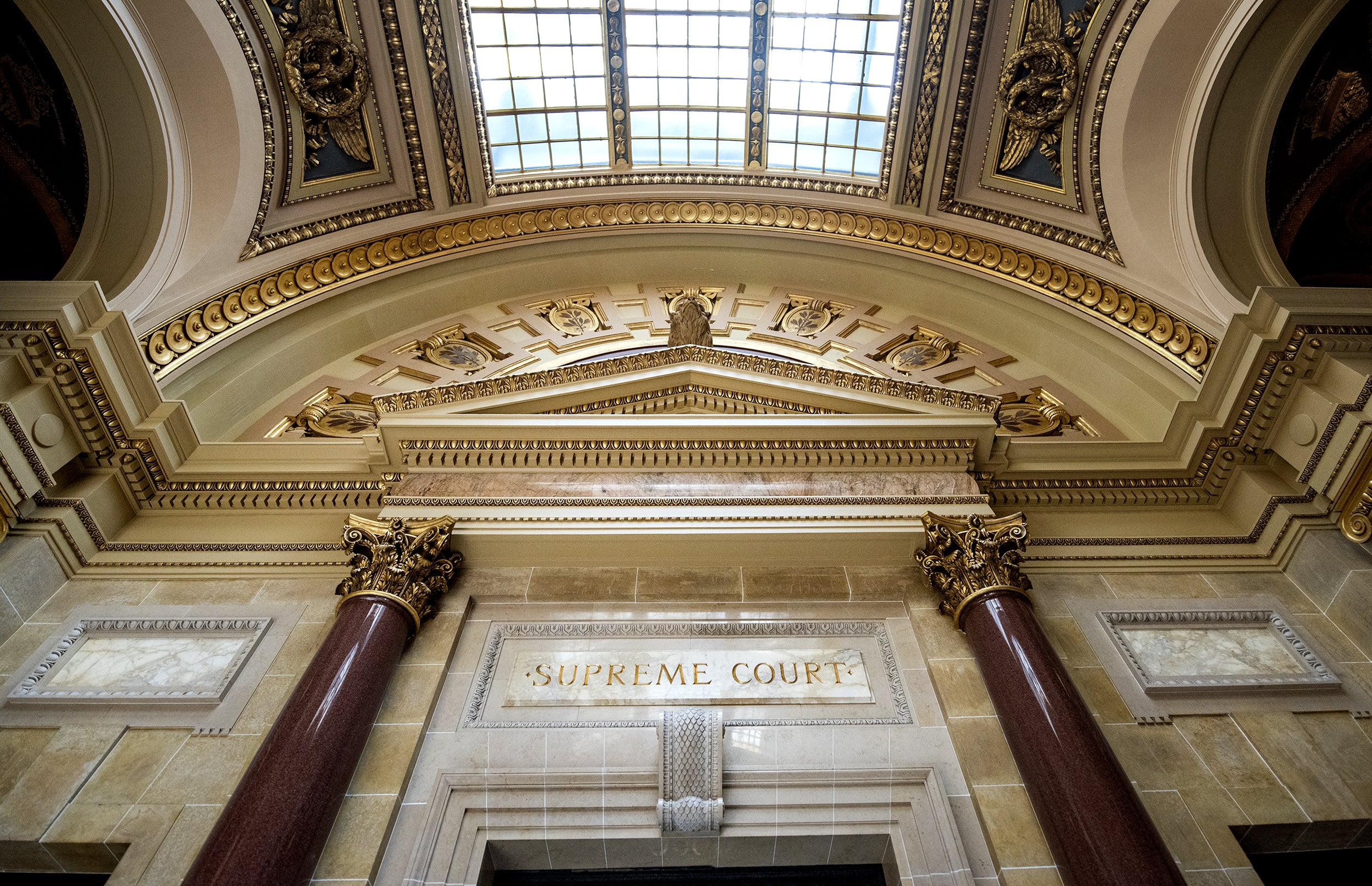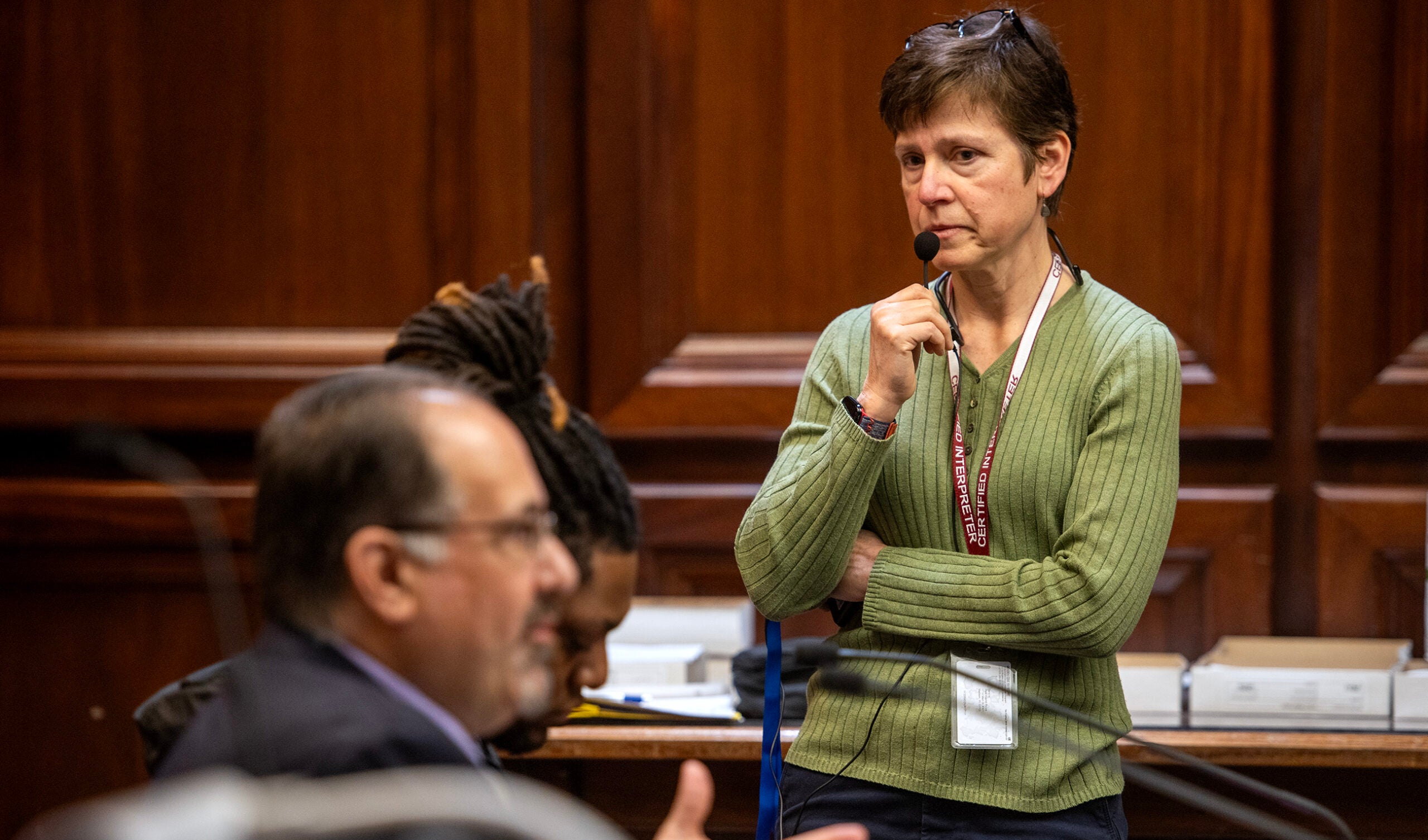The Wisconsin Supreme Court has denied a Wisconsin State Bar request to create a new continuing education credit for attorneys focusing on diversity, equity and inclusion. In a written opinion, conservative Justice Rebecca Bradley accused the group of “virtue signaling” and said the group was pushing for mandatory DEI training that would create “a goose-stepping brigade of attorneys.”
The bar association petitioned the court in March 2022 to allow for the creation of a special continuing education credit titled “Diversity, Equity, Inclusion and Access.” Initially, the bar proposed lawyers be allowed to fulfill their full 30 hours of annual education credits with DEI-related courses.
The Board of Bar Examiners later narrowed its request to allow lawyers to voluntarily take DEI courses related to subjects within the legal system to fulfill up to six credits per year. A bar association memo said working to understand “the effects of bias in negatively impacting the delivery of legal services” would improve the quality of legal services in Wisconsin.
News with a little more humanity
WPR’s “Wisconsin Today” newsletter keeps you connected to the state you love without feeling overwhelmed. No paywall. No agenda. No corporate filter.
Justices denied the request in a closed conference on Feb. 21.
The order, released Thursday, doesn’t specify which justices voted to deny the request. But a concurring opinion written by conservative Justice Rebecca Bradley and signed by fellow conservative Justices Annette Zeigler and Patience Roggensack railed against the request and the motivations behind DEI courses.
“If the Bar’s end game were simply CLE (continuing legal education) credit, the petition would be easily dismissed as virtue signaling given the liberality with which the Board of Bar Examiners (BBE) already awards credit for such courses,” Bradley wrote. “But the Bar ultimately seeks to mandate DEIA training, impose group-think on attorneys and condition bar admission and continuing licensure on subscribing to an illiberal political ideology.”
Bradley referenced the U.S. Supreme Court’s recent order banning affirmative action programs in college admissions and said the principles in that ruling “apply with equal force to the legal profession.”
Her opinion referenced “the cancel culture crowd,” attacked the Black Lives Matter movement and claimed supporters of the bar association’s DEI request want to sow racial divisions.
While the bar association’s petitions didn’t seek to mandate DEI training for attorneys, Bradley pointed to prior statements from the organization that called for mandatory “bias/diversity and inclusion training.”
“The very point of mandating DEIA CLE would be to create a ‘goose-stepping brigade’ of attorneys, but ‘the First Amendment applies strictures designed to keep our society from becoming moulded into patterns of conformity,’” Bradley wrote. Both quotes are from a 1961 U.S. Supreme Court opinion.
The conservative Wisconsin Institute for Law and Liberty, which has challenged government programs and grants focusing on race in court, praised the state Supreme Court’s rejection of the Bar Association’s request.
“It is no mystery that the Harvard admissions decision is causing significant ripple effects throughout our country,” said WILL Deputy Counsel Dan Lennington. “The reason is simple: The Court rededicated this country and its laws to the principle of equality. In most cases, DEI emphatically rejects the colorblind worldview and is openly hostile even to the word ‘equality.’”
In a statement sent to WPR, State Bar of Wisconsin President Dean Dietrich said the association is disappointed by the court’s decision and “will continue to look for opportunities to educate our members on DEIA issues, as we believe education in this area makes lawyers better at delivering legal services to clients of diverse backgrounds.”
“While some DEIA programming can be approved for CLE credit already, the leadership of the State Bar believed it was important to codify DEIA legal-related education as an essential part of lawyers’ professional development, just as the Court has with lawyer wellness, ethics, technology, and practice management,” Dietrich said.
University of Wisconsin Madison associate professor of political science and legal studies Howard Schweber said given the current state of politics, it’s not surprising state’s high court denied the DEI education request. But he called Bradley’s comments shocking.
“Whatever tattered shreds of civility were left within the legal profession have surely vanished when you have a Supreme Court justice saying about her own state’s bar that they are effectively in a conspiracy to take over America and to make an explicit Nazi reference in doing so,” Schweber said.
Schweber said denying the bar’s request because of its vague reference to diversity, equity, inclusion and access without any suggested course materials would have been fair. But he says Bradley’s opinion and recent attacks from Wisconsin Assembly Speaker Robin Vos, R-Rochester, on the existence of DEI programs at UW System campuses marks a big political shift.
“We’ve gone from saying, ‘The idea of diversity is a good thing, but how do you pursue it?’ to, ‘No, the goal of diversity is a bad thing’, to ‘Any time the word diversity is mentioned, there is a threat to the survival of civilization,’” Schweber said.
Bradley’s opinion referenced an “imminent change” for the state Supreme Court, which has been controlled by conservative justices for 15 years. She didn’t name liberal judge Janet Protasiewicz, who defeated former conservative Justice Dan Kelly in April, but said the state bar will likely resubmit its request for new DEI continuing education credits.
Wisconsin Public Radio, © Copyright 2026, Board of Regents of the University of Wisconsin System and Wisconsin Educational Communications Board.






